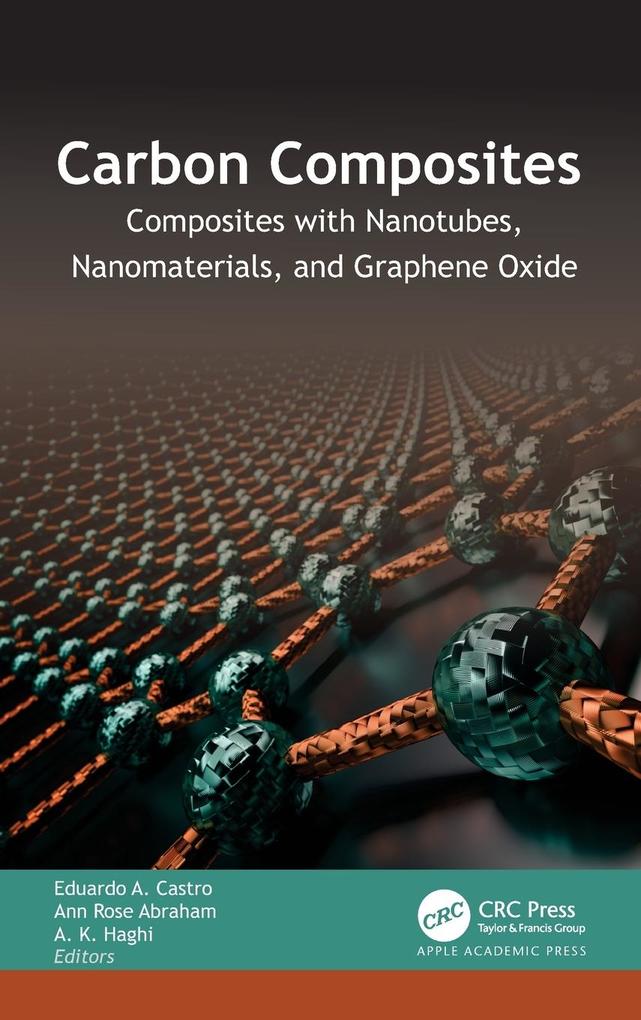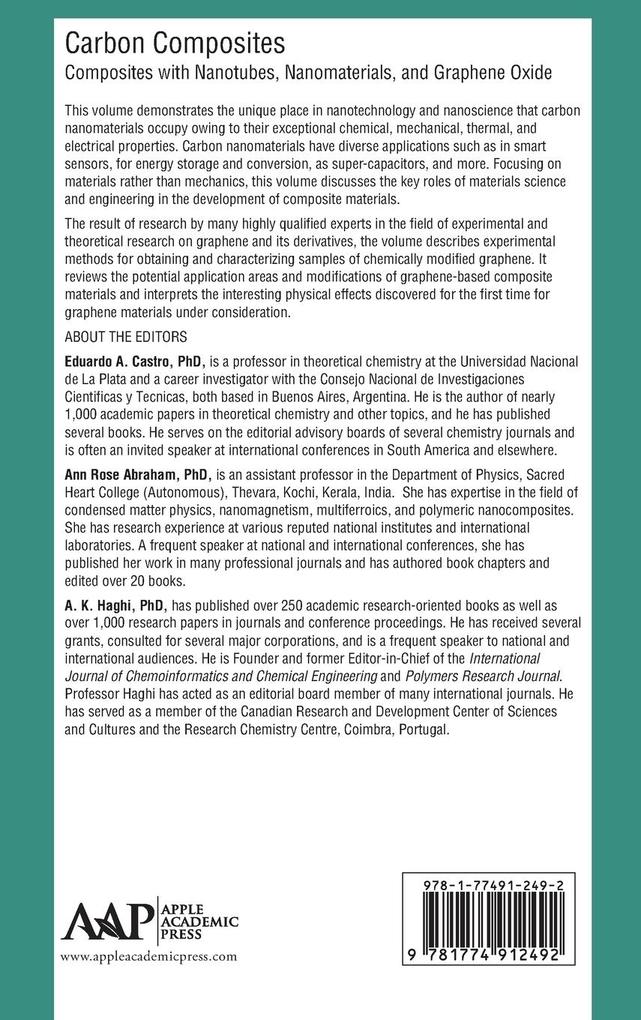
Zustellung: Mo, 07.07. - Fr, 11.07.
Versand in 2 Wochen
VersandkostenfreiBestellen & in Filiale abholen:
Demonstrates the unique place in nanotechnology and nanoscience that carbon nanomaterials occupy owing to their exceptional chemical, mechanical, thermal, and electrical properties. Focusing on materials rather than mechanics, it discusses the key roles of materials science and engineering in the development of composite materials.
Inhaltsverzeichnis
1. Carbon Nanotubes as Metal-Free Catalysts 2. Carbon Nanomaterials for Sensing Applications 3. Carbon Nanotubes and Their Environmental Applications 4. Graphene Oxide-Based Nanocomposites for Wastewater Treatment 5. Carbon-Based Nanomaterials for Energy Storage: A Review 6. Carbon Nanotubes and Their Biotechnological and Biomedical Applications 7. Carbon Nanomaterials for Hydrogen Gas Sensing Applications 8. The Changes of Magnetic Properties of Nanostructed Carbon Compounds Destined for Energy Conversion 9. Factors Influencing Physical and Mechanical Properties of Polymer Composites Modified with Metal/Carbon Nanocomposites 10. The Metal Carbon Mesocomposites as Base for the Synthesis of Magnetic Compounds by the Red-Ox Process 11. How the Mesoscopic Physics Explains the Redox Synthesis of Metal/Carbon Nanocomposites within Polymeric Matrices Nanoreactors 12. Some Peculiarities of Chemical Mesoscopics and This Scientific Trend Development Perspective 13. Carbon Nanotube as a Promising Nanomaterial for Water Treatment
Produktdetails
Erscheinungsdatum
31. Mai 2023
Sprache
englisch
Seitenanzahl
318
Herausgegeben von
Eduardo A Castro, Ann Rose Abraham, A K Haghi
Verlag/Hersteller
Produktart
gebunden
Gewicht
621 g
Größe (L/B/H)
229/152/21 mm
ISBN
9781774912492
Entdecken Sie mehr
Bewertungen
0 Bewertungen
Es wurden noch keine Bewertungen abgegeben. Schreiben Sie die erste Bewertung zu "Carbon Composites" und helfen Sie damit anderen bei der Kaufentscheidung.









